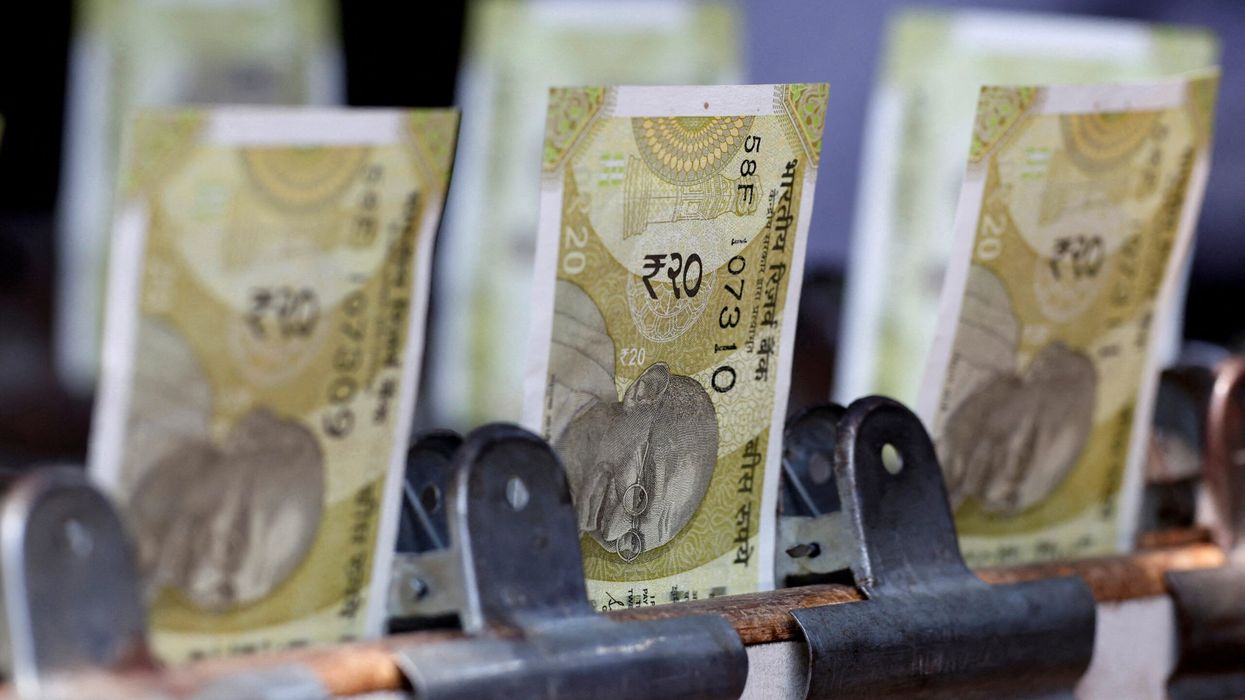THE INDIAN Indian rupee reached a new all-time low on Monday, pressured by sustained dollar demand from foreign banks, likely on behalf of their custodial clients.
The rupee touched a lifetime low of 84.0725 to the US dollar (£1 = ₹109.56), surpassing the previous low of 84.07 recorded on Friday.
For more than two months, the rupee had hovered near the 84 level, with the Reserve Bank of India (RBI) providing regular interventions to stabilise the currency. However, it has come under renewed pressure this month due to ongoing outflows from local equities, with foreign investors withdrawing around $8 billion (£6.15 billion; ₹876.48 billion) over the last ten trading sessions.
On Monday, weak sentiment in Asian markets, driven by disappointment over China's economic stimulus measures, further weighed on the rupee, according to traders.
Most Asian currencies were down by 0.1 to 0.3 per cent, while the dollar index remained near its two-month high at 103.
Local private and state-run banks were seen offering dollars, while large foreign banks dominated the dollar bids, according to a trader at a foreign bank.
The dollar-rupee pair is expected to trade within an "83.95-84.20 range in the near term and remains a sell on uptick if it moves fast," the trader said.
Amit Pabari, managing director at FX advisory firm CR Forex, noted that the RBI's support for the rupee and a potential slowdown in equity outflows could offer some relief and help the rupee rise above the 84 mark.
Traders are also monitoring Brent crude oil prices, which were down to $78 (£60; ₹8,544) per barrel on Monday but have risen nearly 9 per cent in October amid concerns over a potential Middle East conflict affecting oil supplies.
Later in the day, Federal Reserve Governor Christopher Waller is scheduled to speak, which could provide further insights into the future direction of US policy rates.
(With inputs from Reuters)




